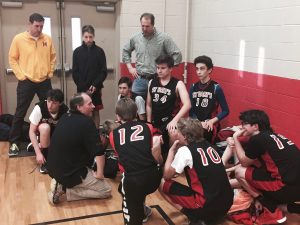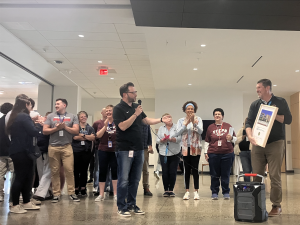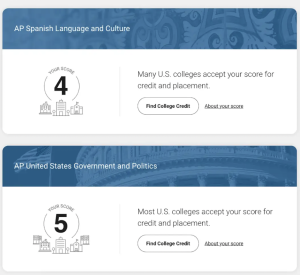Tap “LIKE!” on censorship

A logo of TikTok, a popular social media network worldwide.
November 3, 2021
One nation under authoritarian rule, American citizen voices and opinions stifled. These are the nightmarish fears that American citizens consider when they hear the word “censorship.”
As a teenager, I believe that free speech is a core value of American democracy. America is about freedom, and censorship is supposedly about infringing on human rights. Or is it? What if censorship actually keeps us free? What if censorship is what we all need?
I’m a TikTok user and a fan of the opportunity it provides to connect with friends, especially during the pandemic. Scrolling on my phone, cracking up, and jamming to music brightens my day; TikTok was a way for teenagers and children to escape from the problems brought on by isolation.
That being said, I am not naive enough to disregard the security risks that TikTok imposes.
Today, security is digital. This comes with a lot of problems, as many hackers and opportunists can acquire personal information and use it for material gain or for foreign enemy intelligence.
TikTok is currently downloaded on 100 million American cell phones and has been accused of taking and using people’s private information overseas. Our government has been attempting to censor TikTok to protect American citizens from vulnerabilities by imposing several bans on the social media service.
The truth is that censorship is a fundamental part of keeping Americans safe. How would you feel living in a world with no restrictions where teens like myself can be targeted by nicotine ads or exposed to inappropriate material? Personally, I wouldn’t feel safe nor secure, and this is the reality for many others as well.
Without censorship, we would all likely experience objectionable content. As a TikTok user, I want to feel secure when scrolling through the many videos available to me, whether it’s because the content is appropriate or my personal information is protected.
Censorship plays a substantial role in moderating the amount of harmful content online and on television for kids. With almost 500 million youth using social media daily, it is vital for these children to be protected. Social media platforms have set up restrictions and used censorship via policy agreement as a solution, but it may not be enough.
There is good reason for the federal government to be suspicious of the potential harm posed by video-capable social media such as TikTok, let alone the threat of blackmail or espionage against these vulnerable users.
Though censorship is a buzzword, the reality is that censorship is what we all need. While I don’t think a total ban on TikTok is necessary, people should be able to post and view content safely, and I do believe that the federal government should enforce more regulations on TikTok and other social media platforms.
A democratic country relies on the safety of the general public, and censorship has done plenty to protect us.










Owen Crowder Smith • Nov 3, 2021 at 4:38 PM
While I do recognize the security risk that tiktok imposes on the US, I do not believe that censorship is the answer. The security risk of tiktok is not in the content that is being shown, but the data that is being collected from its users. A better solution, in my opinion is for us American citizens to take on the duty of not using tiktok. While I understand many people enjoy the app, it is ultimately a waste of time and can even be damaging to young people’s mental health.